Improving observation skills Math Worksheets for Ages 4-8
6 filtered results
-
From - To
Enhance your child's critical thinking with our "Improving Observation Skills Math Worksheets" designed for ages 4-8. These engaging worksheets encourage young learners to observe, analyze, and compare numbers, shapes, and patterns, fostering foundational math skills. Each activity promotes visual discrimination and supports children in identifying similarities and differences, preparing them for future mathematical challenges. With vibrant illustrations and age-appropriate exercises, kids will be motivated while developing essential observational skills. Visit our website for a variety of fun and interactive worksheets that align with early math principles, ensuring a successful learning journey for your little one. Start enriching their observation skills today!
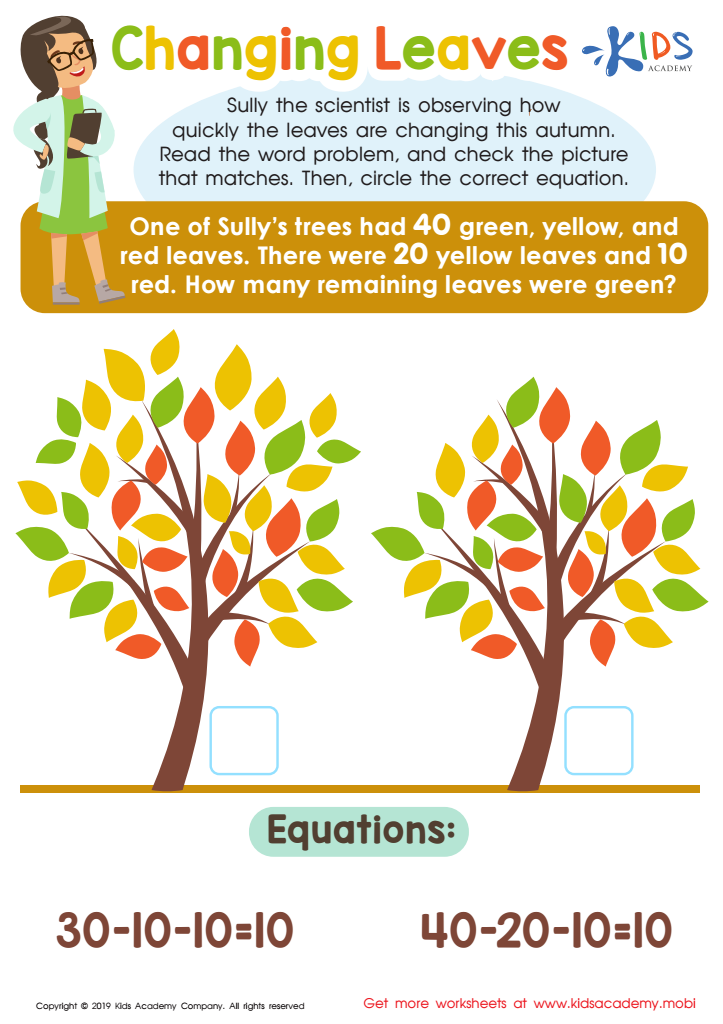

Changing Leaves Worksheet
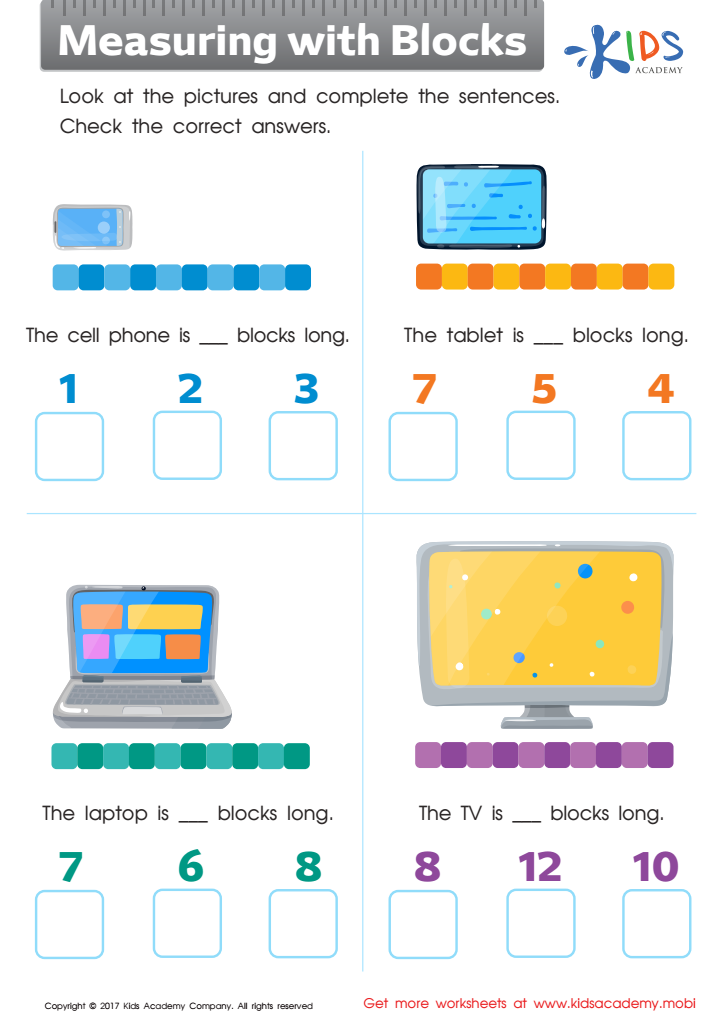

Measuring with Blocks Worksheet
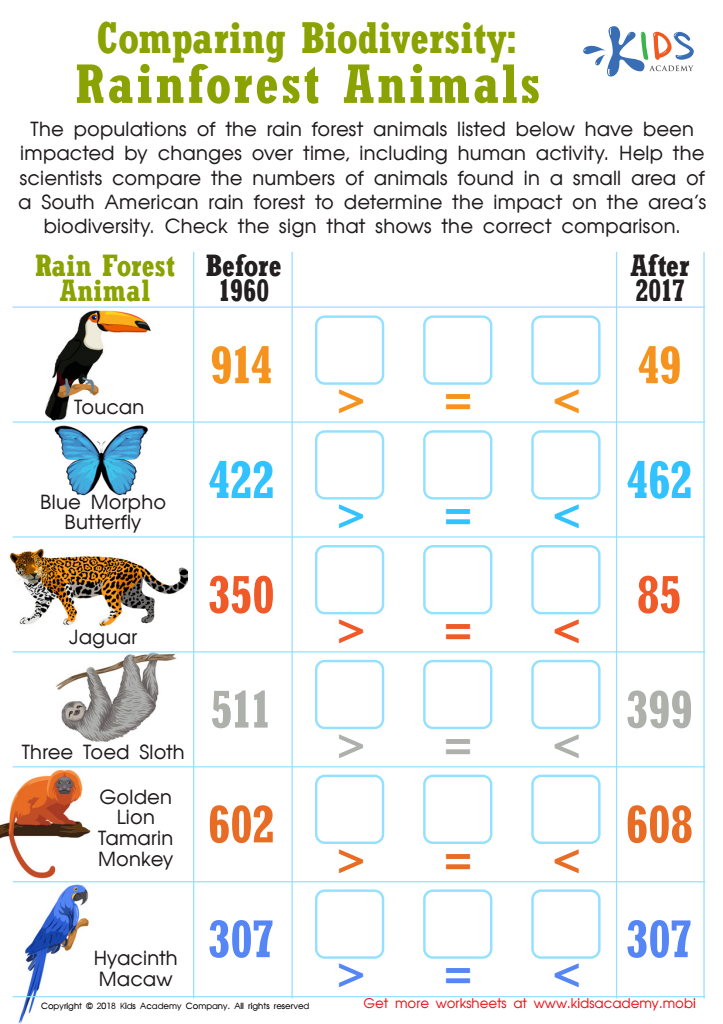

Comparing Biodiversity: Rainforest Animals Worksheet
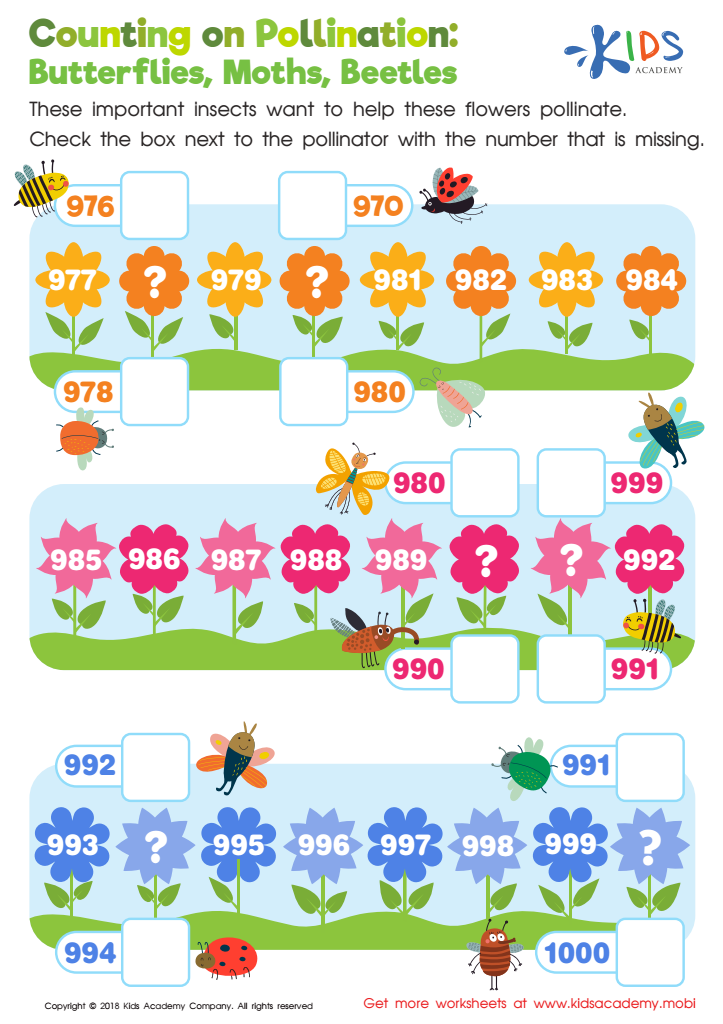

Counting on Pollination: Butterflies, Moths, Beetles Worksheet
Improving observation skills in math for children aged 4-8 is crucial for several reasons. At this developmental stage, young learners are naturally curious and eager to explore their surroundings. By honing their observation skills, children can develop a foundational understanding of mathematical concepts. Observational skills help them recognize patterns, identify shapes, and quantify objects in their environment, fostering a deeper understanding of basic math.
Parents and teachers play a pivotal role in nurturing these skills through engaging activities that prompt children to notice details in everyday situations. For instance, when children observe and sort various objects by size, shape, or color, they are developing critical thinking and early problem-solving skills. This hands-on approach not only makes learning enjoyable but also encourages a growth mindset, where children learn to approach challenges with curiosity rather than fear.
Moreover, strong observational skills support overall cognitive development, enabling children to make connections between their observations and mathematical ideas. When parents and teachers encourage this exploration, they are empowering children to build confidence in their abilities. By prioritizing the improvement of observation skills in math, we create a solid foundation for lifelong learning and success in mathematics and beyond.
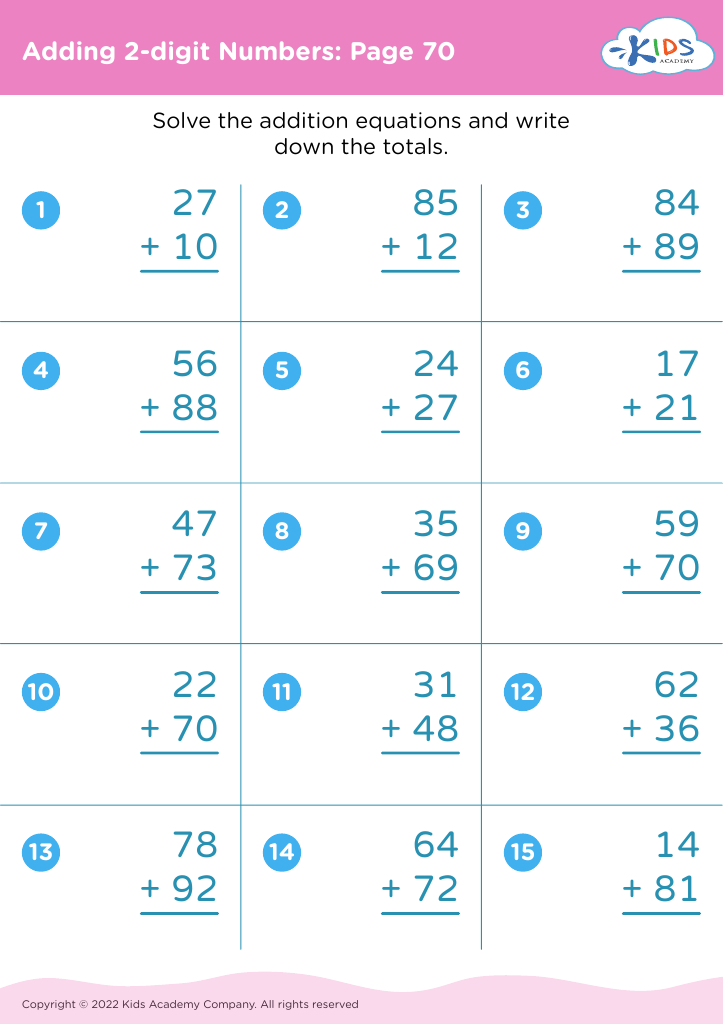

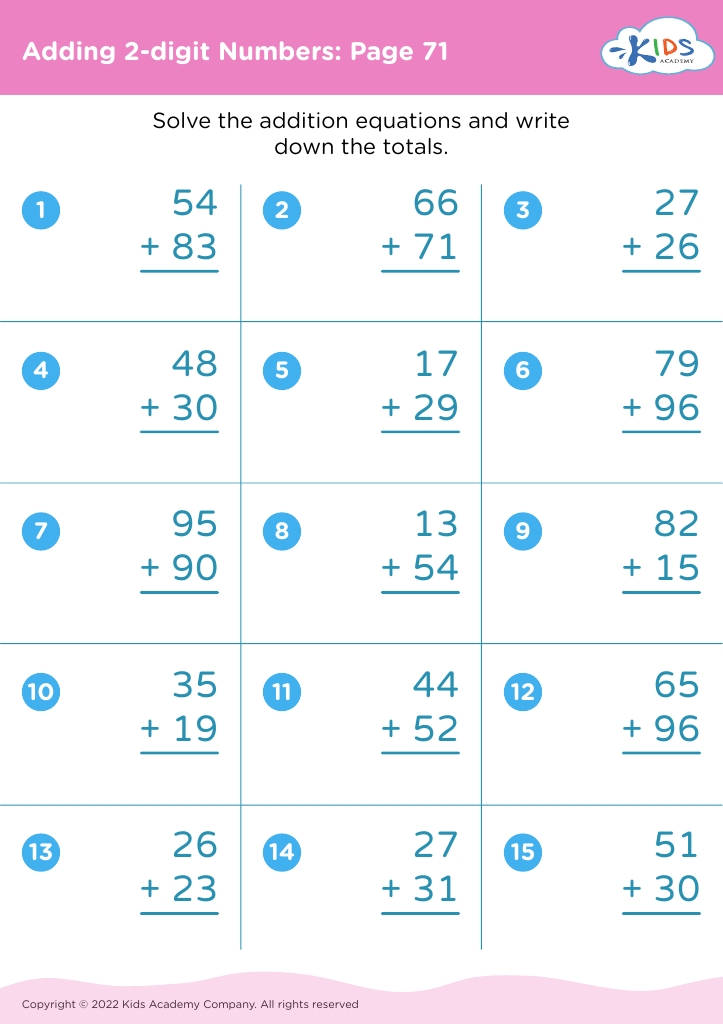
 Assign to My Students
Assign to My Students




















